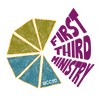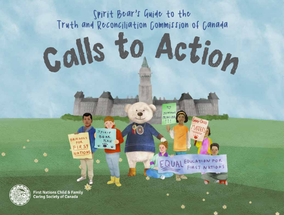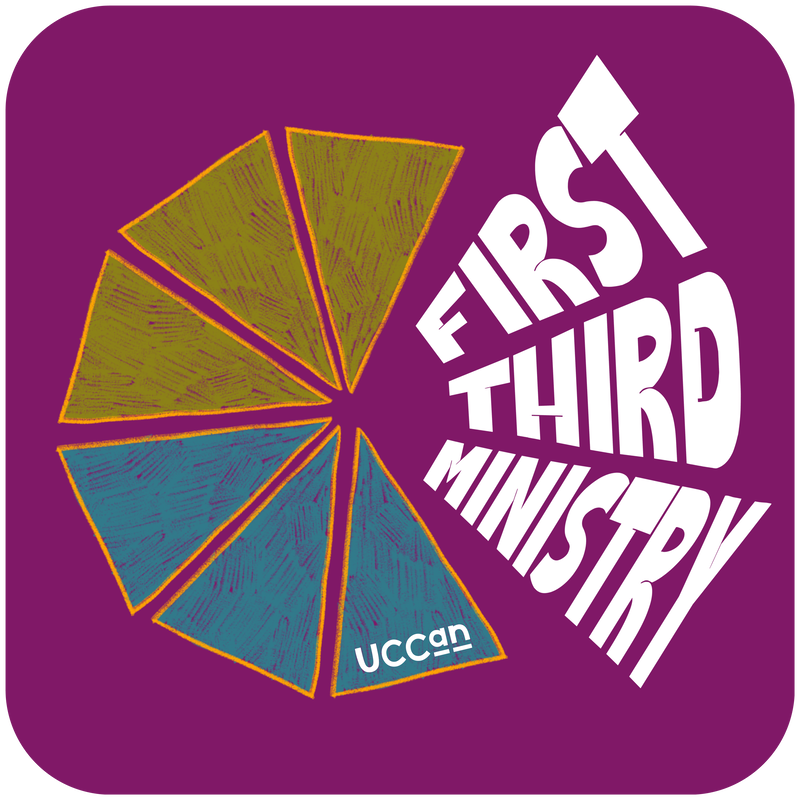- Home
- Events
-
Leader Support & Education
- Rituals and Practices for an Intergenerational Worshipping Community
- Leadership Conference 2024: Anti-Racism Work And Action >
- Leaders Online Gatherings
- Certificate in Children, Youth & Family Ministry
- Godly Play Events 2023
- Art Of Children and Youth Ministry Course
- Deepening Pastoral Practice Amidst Continuing Pandemic Realities
- RE-ENTRY with First Third Ministry
- Spiritual Conversations: Pastoral Ministry with Children, Youth, and Families
- VST Course Cohort: A Spirituality of Race for First Third Ministry Leaders
- COVID-19 Aware Guidelines
- Youth Council
- Resources
- News
- Contact
- Family
Resources on this page may include content that is distressing, particularly for Residential School survivors and their families.
There are many supports available, including the following:
The Indian Residential Schools Crisis Line (1-866-925-4419) is available 24 hours a day for anyone experiencing pain or distress as a result of their residential school experience
The First Nations and Inuit Hope for Wellness Help Line (1-855-242-3310) is toll-free and open 24 hours a day, 7 days a week
In BC: the KUU-US Crisis Line (1-800-588-8717) is a toll-free, 24-hour resource by Indigenous people for Indigenous people
The Indian Residential School History and Dialogue Centre webpage has wellness resources for anyone to access
There are many supports available, including the following:
The Indian Residential Schools Crisis Line (1-866-925-4419) is available 24 hours a day for anyone experiencing pain or distress as a result of their residential school experience
The First Nations and Inuit Hope for Wellness Help Line (1-855-242-3310) is toll-free and open 24 hours a day, 7 days a week
In BC: the KUU-US Crisis Line (1-800-588-8717) is a toll-free, 24-hour resource by Indigenous people for Indigenous people
The Indian Residential School History and Dialogue Centre webpage has wellness resources for anyone to access
Why Truth First?Truth and Reconciliation Commission of Canada Call to Action #59: We call upon church parties to the Settlement Agreement to develop ongoing education strategies to ensure that their respective congregations learn about their church’s role in colonization, the history and legacy of residential schools, and why apologies to former residential school students, their families, and communities were necessary. |
There was Tom and there was John. Tom lived opposite John. One day, Tom stole John’s bicycle and every day John saw Tom cycling to school on his bicycle. A year later, Tom walked up to John. He stretched out his hand. “Let’s reconcile and put the past behind us.” John looked at Tom’s hand. “And what about the bicycle?” “No,” said Tom, “I’m not talking about the bicycle. I’m talking about reconciliation.” This story was told by Father Mxolisi Mpambani during a panel discussion on reconciliation organised jointly by the Truth and Reconciliation Commission and the University of Cape Town’s department of African Studies. |
|
Residential Schools & the Church
The United Church of Canada operated 15 residential schools across Canada from church union in 1925 until 1969. Before 1925, these schools were run by the Presbyterian & Methodist communities which would form the United Church. One of the first residential schools in Canada was opened in 1851 by the Methodist Church. The United Church would operate five schools in what is now Pacific Mountain Region and three in what is now Chinook Winds Region. Children at these schools experienced physical, sexual, verbal, spiritual, and cultural abuse. Children died at these schools, many due to illness like tuberculosis or as a direct result of the poor conditions and poor treatment they received. The United Church continued operating these schools despite protests and concerns raised by Indigenous communities, the students, and their families. As well, in many cases, there were numerous reports documenting the poor conditions of the schools. In 1922, Medical Inspector H.P. Bryce reported that 24 percent of all children who had attended residential schools in Canada had died. The United Church was still operating five schools across Canada when the Department of Indian Affairs took over all student residences in 1969. Today, the United Church has committed to facing the truth of our involvement with Residential Schools and hearing the voices of survivors and their families. The United Church has also committed to building new relationships with Indigenous communities. Reconciliation & the Church
The United Church's Apologies Many Indigenous people were hurt by the things that were said and done at Residential Schools. Some still wanted to be part of the church, but a different kind of church - where Indigenous cultures, stories, languages, and land were respected. In 1981, the United Church had a meeting with people from all the churches all across Canada. Alberta Billy, an elder from the We Wai Kai nation in B.C. and a member of the church, said that the church needed to apologize for what they did to Indigenous people at residential schools. People listened to Alberta Billy. In 1986, the United Church gave an apology to Indigenous peoples. Because of Alberta Billy, the United Church was the first church to apologize to Indigenous communities. This was an important step – but the work was not done yet. The Indigenous Church acknowledged the apology, but they did not accept it. In their response, they said they hoped and prayed that the words of the apology would be words of ‘action and sincerity’. The apology and the response were steps on the path to being a different kind of church than we had been before; now it’s time for us to walk that path together. Click to read the UCC Apologies and Response. Moving Forward, Together A conversation with Alberta Billy, the Very Rev. Bob Smith, Pam Hart, and Lawrence Sankey on the 30th Anniversary of the Apology to Indigenous Peoples | 41:15 runtime. The Truth and Reconciliation Commission (TRC) in Canada was organized so that former Residential School students and their families could share their stories. The Commission also created 94 calls to action for people and groups in Canada – actions that communities could take together to begin a journey of reconciliation. Beyond94 An interactive resource from CBC News to report on the progress made for each Call to Action. The United Church's Response to the Calls to Action Document created in 2022 outlining the United Church's progress on Calls to Action addressed to faith groups or to the parties to the Settlement Agreement (which includes the United Church of Canada). |
Age Based Resources
NOTE: For a long time, schools and churches didn’t teach about things like colonization or residential schools. Adults like your parents and grandparents might not have learned some of these things before, and they might have lots of questions. Kids can be teachers too – ask your adults what they have learned before, share what you know, and ask questions together!
Resources for Children and Families: The word Indigenous - explained An animated CBC Kids News video explaining the term 'Indigenous', as well as other key terms that are used refer to Canada's Indigenous peoples | 2:27 min runtime What is reconciliation? A CBC Kids News video explaining what 'reconciliation' means. why it is necessary in Canada, and overviewing the formation and work of the Truth & Reconciliation Commission | 4:46 min runtime Treaties Explained A CBC Kids News video on historic and modern treaties between Indigenous peoples and the Canadian government | 5:54 min runtime Activity: Remembering the 1986 Apology General Council created an Apology Cairn as a reminder of our ongoing work to live into the apology. Try this activity and create a space to remember and live into the apology in your home! Resources for Youth and Adults: Namwayut: we are all one. Truth and reconciliation in Canada | Canada is ... An animated video of Chief Robert Joseph's description of his time in residential school and his experiences of the Truth & Reconciliation Commission | 4:20 min runtime Residential Schools in Canada: A Timeline A video on the history of residential schools in Canada from the 17th century until the TRC report in 2015 | 5:39 min runtime The Children Remembered: Residential Schools Archives Project A UCC resource with photographs, records, and resources documenting the United Church Residential Schools, including information and accounts of each individual school. Resources for Leaders: kinSHIFT workshops A series of Indigenous-led virtual workshops designed to build foundational skills for reconciliation. Biblical Reflection on the Doctrine of Discovery A resource from the United Church of Christ (USA) which uses exploration of scripture to repudiate the Doctrine of Discovery and to begin to decolonize the approach to the texts. Calls to the Church A UCC document that 'articulates the Indigenous Church's vision for the ongoing development of Indigenous Peoples' mission and ministry and communities of faith.' Kairos Blanket Exercise An experiential learning workshop that helps participants cultivate understanding of the effects of colonization on Indigenous peoples in North America. Legacy of Hope Exhibitions curated by an Indigenous-led organization to educate communities on Residential Schools, the Sixties Scoop, MMIWG, and more. Click below to see recommended books & more resources for all ages related to Reconciliation & Indigenous Justice.
|
Email:
|
Sign Up for First Third Ministry EmailsConnecting you and your community to First Third Ministry's life and work.
|




